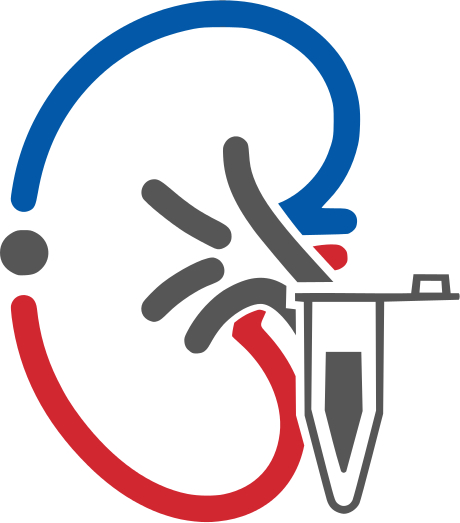Project objectives
Chronic kidney disease (CKD) is defined by
sustained structural or functional abnormalities of the kidneys.
Clinically available markers (eGFR, albuminuria) used to monitor and
predict the
risk of CKD progression are imperfect.
KidneySign aims to improve the detection and monitoring of kidney damage and CKD progression.
Expected Results

Biomarker of kidney damage
A blood- and urine-based multimodal proteomic signature reflecting in
situ kidney fibrosis

Biomarker of CKD progression
A blood- and urine-based proteomic signature predictive of the risk of progression of CKD

Clinical decision support system
A companion software that estimates the risk of CKD progression and offers therapeutic guidance
Study design
In this clinical project, CKD patients who contributed to biobank studies or are recruited for the prospective observational study consent to data and samples analysis for research purposes.
High throughput technologies peptidomics and proteomics applied to a set of biological samples (kidney tissue, blood/serum and urine) allow to
precisely characterise the molecular state of patients.
Changes in molecular patterns evaluated by Big Data analysis techniques are summarized into a non-invasive signature of kidney fibrosis and of CKD progression.
Ethical issues related to AI and risk evaluation are evaluated and accounted for from the start in an Ethics by Design approach, to ensure the final results are clinically and ethically acceptable for patients and users.
Collaboration on ethical issues analysed across ERA-PerMed JTC2022 projects ensures high ethical standards.

